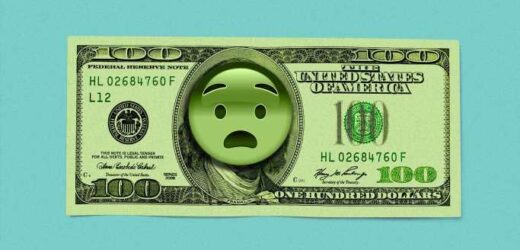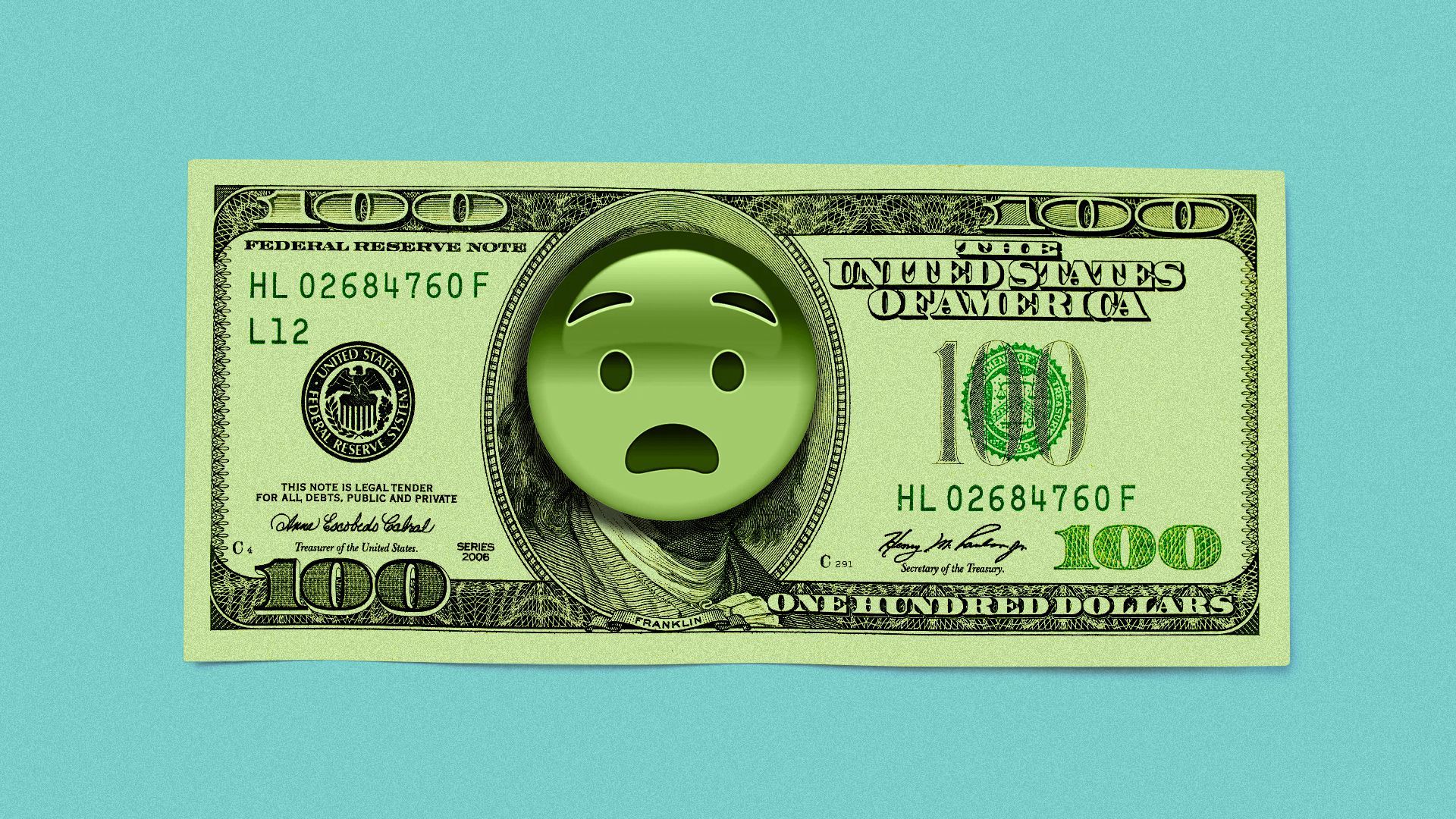Illustration: Aïda Amer/Axios
People have suddenly stopped using money — of the bill-and-coin variety — for fear it may spread the virus. Some worried shopkeepers have stopped accepting it, too.
Why it matters: The coronavirus may have changed our buying and payment habits forever. Online shopping is through the roof, and consumers are rushing to get "contactless" credit and debit cards, which are tapped at a merchant terminal rather than inserted or swiped.
Driving the news: The coronavirus has made us scared to touch anything, and there's a perception that money is dirty and payment terminals carry germs.
- ATM use is down 32%, according to Visa, and 63% of consumers say they're using less cash.
- In places like South Korea, bank notes have been disinfected and placed in quarantine.
- The decline of cash has been particularly pronounced in the U.K., where an article in the Telegraph quoted a W.H.O. official advising people to wash their hands after touching currency.
Yes, but: Health experts say they consider it unlikely that cash is spreading COVID-19 (though hand-washing is always recommended).
The backstory: In March, when many people started sheltering in place and retail locations closed en masse, there was a huge migration to virtual commerce. Merchants that hadn't been online raced to put up web storefronts, and consumers moved the bulk of their shopping.
- "It's just been like three years of digital commerce growth being pulled forward into three months," Brian Cole, head of North America products & solutions for Visa, tells Axios. "People are making purchases that they would have made in person, but they’re making them online now."
- The number of active Visa cards being used e-commerce jumped 30%.
- COVID-19 is "pushing people into e-commerce who would not normally be using it," David Robertson, publisher of the authoritative card industry publication the Nilson Report, tells Axios. "I mean, I have a 90-year-old friend who uses Instacart now."
One practice that has grown common and isn't likely to go away: Paying for something on an app or a website — like a pair of pants or a pasta dinner — and picking it up in the store.
Between the lines: The acceleration of e-commerce and card payments at the expense of cash is convenient for consumers and good for banks, which reap fees on the transactions. But it can be bad for merchants, who pay those fees, and for low-income people who lack bank accounts.
- Retailers have been in litigation with the credit card networks for decades over the "swipe fees" they owe whenever a consumer pays by card.
- The fees vary widely, depending on the type of card and size of the merchant, but can typically be 2%-2.5% of a transaction.
- Despite the growing cost of handling cash (bringing it to the the bank, etc.) "I think most merchants, especially small merchants and small-transaction merchants, would still prefer to take cash," K. Craig Wildfang of the law firm Robins Kaplan, who represents retailers in an ongoing lawsuit over swipe fees, tells Axios.
The catch: Not everyone has access to credit or debit cards — especially low-income people. Retailers like Sweetgreen have tried going entirely cashless only to see pushback from advocates for the poor.
- The city of Philadelphia now has a law requiring all stores to accept cash.
- People who rely on cash tips also suffer when currency isn't in wide use. (David Gelles of the New York Times discovered this when he experimented with living cash-free, and found himself guiltily stiffing his barber and a hotel valet out of a tip.)
The next big thing: contactless cards. They're pervasive in Europe and elsewhere, and are just starting to hit the U.S. in a big way — and, for the first time, consumers are demanding them.
- People who use Apple Pay and Samsung Pay on their phones have gotten accustomed to paying with a wave.
- The credit card networks have always promoted electronic payments as faster and more efficient — and now, with COVID-19, they're promoting them as cleaner and healthier.
- Burger King ran a recent commercial in which it touted its contactless payment option.
The bottom line: As bad as things have been, life during COVID-19 would have been much worse for so many people without the ability to buy goods online and have them delivered, notes Linda Kirkpatrick, Mastercard's president of U.S. issuers.
- "I can’t imagine if this happened 55 years ago before our network was created," she tells Axios. "We would be in a very very different place."
Source: Read Full Article



